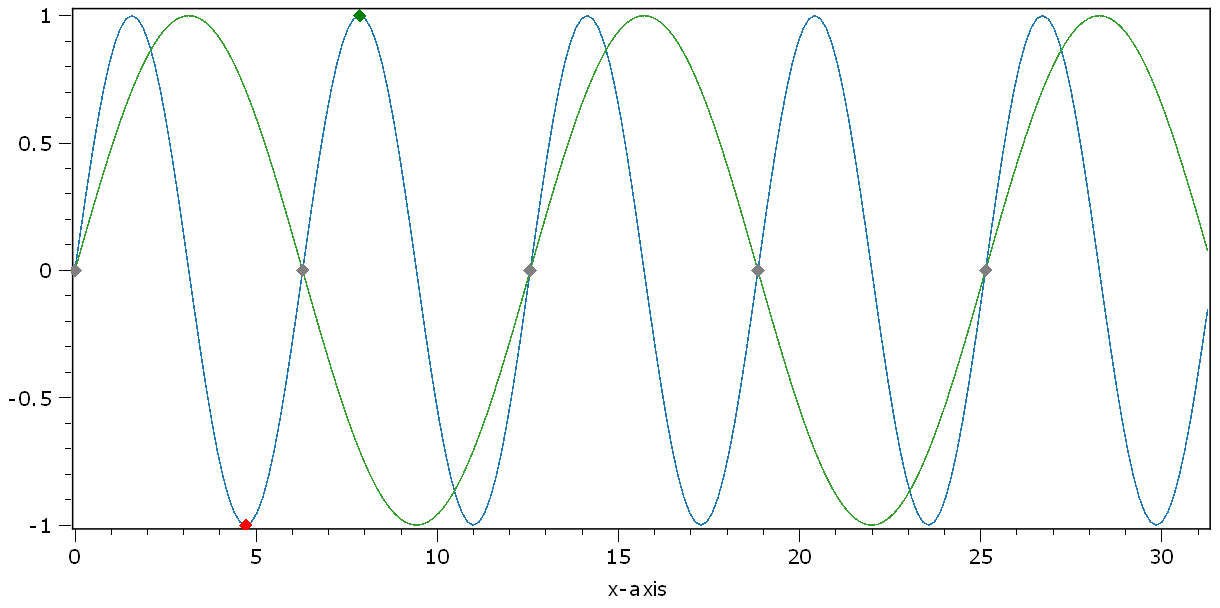Note
Go to the end to download the full example code.
12.1.10.5.16. Draw pickers 1D plot#
This demo shows how to programmatically set pickers to the line of a 1D plot.
The most important slots for these features are implemented
in the designer widget itom1dqwtplot:
myPlotHandle.call("setPicker", axis-values [, curveIndex = 0, physicalCoordinates=True])
myPlotHandle.call("appendPicker", axis-values [, curveIndex = 0, physicalCoordinates=True])
myPlotHandle.call("deletePicker", [index])
setPicker and appendPicker are used to set a new set of pickers or append further
pickers to the existing set of pickers. deletePicker is used to clear existing pickers.
For settings pickers, a list or tuple of axis-values has to be given. The corresponding value
is calculated based on the current curve, that is displayed. In order to stick the new picker
to another than the first curve, use another curveIndex parameter. Usually, the axis-values
are considered to be given in physical coordinates (which are displayed in the coordinate system).
If you want to give the coordinate of a picker in real pixel-coordinates of the dataObject,
set physicalCoordinates to False.
import numpy as np
from itom import plot
from itom import dataObject
def pickerChangedSlot(pickerIdx, posX, posY, curveIdx):
print(
"picker %i changed. New pos: (%.2f, %.2f), curve: %i"
% (pickerIdx, posX, posY, curveIdx)
)
# create demo data
# 1d sine
sine = np.sin(np.arange(0, 10 * np.pi, (1 / 20) * np.pi))
sine2 = np.sin(np.arange(0, 5 * np.pi, (1 / 40) * np.pi))
twosines = dataObject([2, len(sine)], "float64")
twosines[0, :] = sine
twosines[1, :] = sine2
twosines.axisScales = (1, np.pi / 20)
[i, h] = plot(twosines, "itom1dqwtplot")
h.connect("pickerChanged(int,double,double,int)", pickerChangedSlot)
# increase the maximum number of pickers to 7
h["pickerLimit"] = 7
# set two pickers to the first curve
h.call("setPicker", (1.5 * np.pi, 2.5 * np.pi), 0)
# set two pickers to the second curve
h.call("appendPicker", (40, 80, 120, 160, 200), 1, False)

Total running time of the script: (0 minutes 0.066 seconds)
